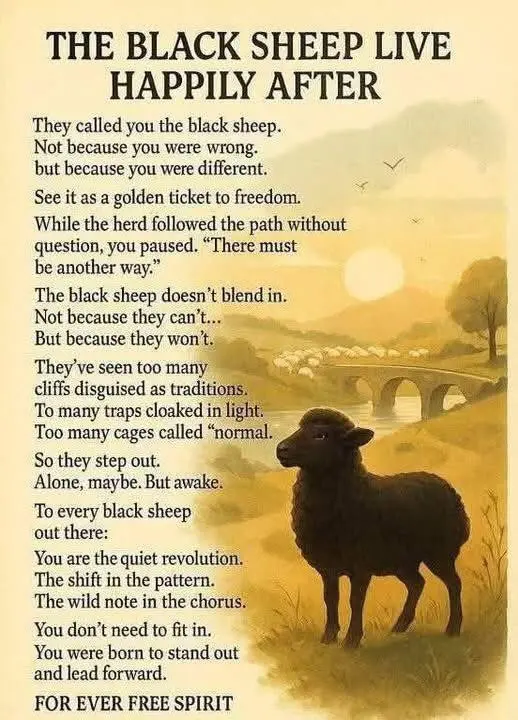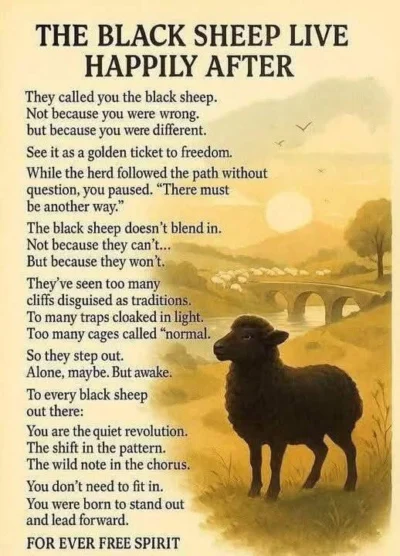1. Scapegoating Relieves Pressure on the Group In families that are unstable or abusive, members often project problems onto one person.
1. Scapegoating Relieves Pressure on the Group
In families that are unstable or abusive, members often project problems onto one person.
The “Black sheep” becomes a lightning rod: blamed for tension, conflict, or failures so others don’t have to face uncomfortable truths.
Example: Instead of acknowledging a parent’s drinking problem, the family may focus on the teen who “causes trouble.”
2. Maintaining the Illusion of Normalcy
Dysfunctional families often care more about appearances than reality.
Labeling one member as the problem allows others to look “healthy” or “blameless.”
The Black sheep is sacrificed to preserve the family’s public image.
3. Punishment for Non-Conformity
Black sheep are often the ones who see, speak, or resist what others want hidden.
They might question harmful traditions, point out abuse, or simply have different values.
In unhealthy families, independence = threat. The punishment is isolation and labeling.
4. Projection of Shame & Fear
Parents who cannot face their own wounds often project them onto one child.
Example: A mother who was silenced as a child may call her outspoken daughter “difficult” or “angry.”
The family’s denied pain gets deposited into the Black sheep.
5. Power and Control Dynamics
Dysfunctional families often operate like small power systems.
Creating a “Black sheep” keeps the others aligned with authority — if you step out of line, you could be next.
This teaches compliance and silence, especially around abuse.
6. Survival Strategy for Other Members
Siblings or other relatives may unconsciously accept the scapegoat role for one person because it protects them from being targeted.
“Better them than me” becomes the silent agreement.
7. Cycle of Silence & Denial
Over time, the Black sheep may internalize the role, feeling like they truly are the problem.
This is tragic because in many cases, the Black sheep is the most truth-telling, sensitive, or justice-seeking person in the family.
✨ Big Picture
The Black sheep role exists because dysfunctional families need a release valve for their dysfunction. But that “release” doesn’t heal anything — it simply isolates one member to carry the burden for everyone else.
In reality, the Black sheep is often:
the truth-teller,
the pattern-breaker,
and the one most capable of healing outside the family system.

